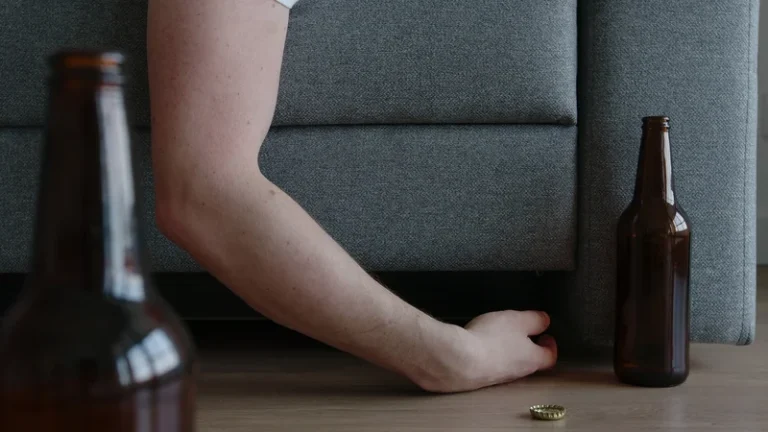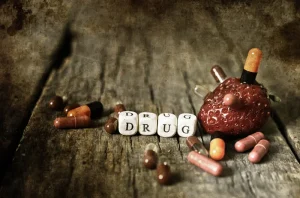
If you started to expect such a favor all the time, however, your entitlement could lead to refusal and then hostile thinking. Take time to look at yourself and your life and be grateful to yourself. If you are in recovery, you have accomplished so much just by being sober https://ecosoberhouse.com/ or trying to get sober. Thank yourself for showing up each day to try again, to grow, to face challenges, and to work on being the best version of yourself. Often, those in recovery, forget to show gratitude to themselves for all they have overcome and accomplished.
- It allows you to appreciate what you have instead of dwelling on your difficulties.
- By practicing gratitude, individuals in recovery can tap into its transformative power.
- And while it may not come easily at first, just like negative thinking is a habit for some, being grateful can become a habit too.
Why Is Gratitude Important for Relationships in Recovery?
By practicing gratitude, individuals create a positive mindset that supports their recovery journey. It helps them navigate challenges with resilience and hope, serving as a catalyst for healing and growth. Gratitude fosters a sense of appreciation for the progress made and the opportunities that lie ahead, reinforcing the commitment to sobriety. In the journey of recovery, gratitude plays a significant role in building resilience and overcoming setbacks. Gratitude has been found to reduce envy, facilitate positive emotions, and increase resilience. By incorporating gratitude practices into the recovery process, individuals can develop a mindset that supports their ongoing journey towards sobriety and personal growth.
Achieve Sobriety with Virtual IOP
- Inspiration and motivation work together to support a focus on recovery.
- A little bit of kindness can make a big difference in someone else’s life and can melt away harbored feelings of anger, guilt, and sadness.
- Humans are newcomers on earth, wholly dependent on its freely given bounty.
- By practicing gratitude, individuals can also experience positive effects on their relationships.
- Practicing gratitude also teaches us how to love and respect ourselves, which enables us to love and respect others as well.
- The transition from addiction to recovery isn’t overnight, and the benefits don’t come all at once.
But as you begin to practice gratitude, something magical happens. This appreciation often leads to improved communication, increased empathy, and stronger bonds. Skepticism about gratitude practices is common, especially among those new to recovery. Maybe begin by simply noticing one good thing each day, without any pressure to feel overwhelmingly grateful.
Day Treatment vs. Inpatient Programs
Awareness is necessary, but not sufficient, for the fulsome practice of gratitude. We cannot take from the earth with only a mere “thank you” in return. We must also become active stewards by caring for the natural world that already cares for us.
Frequently Asked Questions About The Power of Gratitude in Sober Living

At the same time, you should work to both forgive others who may have made things worse for you or said harsh things while you were addicted and work to reach closure with them. Most people tend to be happier and more satisfied with life when they contribute to others and help them with their own lives. gratitude in recovery This applies whether you’re volunteering to help others, doing things that make your friends and family happy, or working in a way that contributes to your community and surroundings. Volunteering actually triggers the reward system in your brain, causing you to feel happier and more satisfied.

Effective Strategies to Stop Sugar Addiction

This improved self-image can be a powerful motivator in maintaining sobriety. Gratitude is the act of appreciating what you have and expressing it to yourself and others. It can help you shift your focus from what you lack or regret to what you have and cherish. This can reduce negative emotions such as anger, resentment, guilt, and shame, which can trigger a relapse. Gratitude can also increase positive emotions such as joy, happiness, love, and hope, which can support your recovery. In addiction recovery, practicing gratitude doesn’t have to be complicated.
The Power of Gratitude In Your Recovery
- These dark and clouded thoughts can take a negative situation and make it worse.
- Maybe begin by simply noticing one good thing each day, without any pressure to feel overwhelmingly grateful.
- ” It’s a valid question, and one that many people in recovery grapple with.
- Studies have shown that grateful people experience more positive emotions, such as joy, love, and satisfaction.
- You can set a reminder on your phone or choose a specific time of the day to practice gratitude.
By expressing gratitude, individuals not only cultivate meaningful connections but also foster a sense of security and connectedness during the turbulent journey of addiction recovery. In the journey of recovery, cultivating gratitude plays a significant role in healing and growth. Gratitude serves as a catalyst for individuals, helping them navigate challenges with a positive mindset, fostering resilience, and instilling hope.
Take on Challenges with a Positive Mindset

By cultivating an attitude of gratitude, individuals in recovery can find strength, motivation, and a sense of purpose on their journey to lasting sobriety. Expressing gratitude can encourage individuals in recovery to strive for improvement, boost resilience during challenges, and lay the foundation for long-term success in all areas of life. It helps shift the mindset from focusing on what is lacking to appreciating the positive aspects of life [4]. By embracing gratitude in recovery, individuals can build resilience and develop a positive mindset that supports their ongoing journey towards sobriety and personal growth. Practicing gratitude allows individuals to find strength in difficult times, reframe setbacks as opportunities, and maintain a hopeful outlook on their recovery path. Gratitude has the power to strengthen relationships, create a sense of connectedness, and maintain sobriety.

Science Behind Day Treatment Programs
Research into the benefits of regular gratitude practices shows an increase in the body’s ability to fight illness including reducing the risk of heart failure. When we begin thinking negative thoughts or finding something wrong with a person or situation, these thoughts grow. Have you ever become annoyed or frustrated by a person or something they’ve done? But what happens for most is when we start to think those judgemental and negative thoughts we think of more things about the person or situation we don’t like. The thoughts can snowball until we’ve worked ourselves into a state of restlessness and discontent.